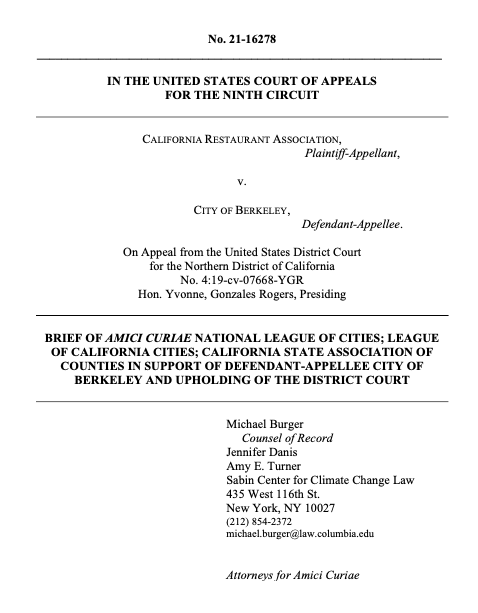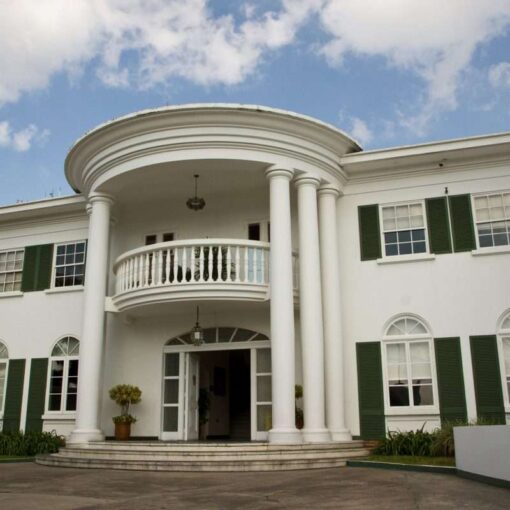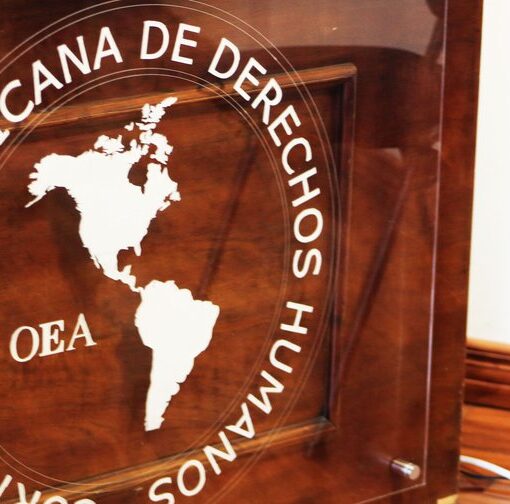On March 24, after years of litigation, the Arizona Superior Court, Pima County, ruled in favor of the University of Arizona and its efforts to protect climate scientists’ correspondence and prepublication work.[1] In particular, in Energy & Environment Legal Institute v. Arizona Board of Regents, et al., the court upheld the University’s decision to deny large portions of open records requests by Energy & Environment Legal (known as E&E, and formerly named the American Tradition Institute or ATI), a group that has repeatedly sought to use open records laws to access troves of researchers’ private files.[2] E&E has been described as having “a core mission of discrediting climate science and dismantling environmental regulations” in part through “filing nuisance suits to disrupt important academic research,” and the group has been linked to the fossil fuel industry, “major conservative players,” and “organizations opposing action on climate change.”[3]
State and federal open records laws promote government transparency by allowing citizens to request administrative records, with exemptions for national security, trade secrets, and similar issues. But open records laws have also become common tools of those seeking to harass scientists,[4] and open records requests for large swaths of documents (including private emails) have been made on scientists employed by the government or public universities, or who otherwise receive public funding. The scientists must then review and produce potentially thousands of documents – sometimes in a matter of days, depending on the applicable laws – or marshal a legal response explaining why the requests are invalid.
In the Arizona case, E&E filed multiple requests under Arizona’s open records laws for the files of University of Arizona climate scientists Dr. Malcolm Hughes and Dr. Jonathan Overpeck, seeking thirteen years of documents – including emails dating back to the 90s. (E&E has also unsuccessfully gone after Dr. Michael Mann’s emails in Virginia,[5] as well as many others.[6]) The University of Arizona produced some documents but denied release of several thousand others.[7] The University stated the withheld documents contained protected intellectual property, including trade secrets and prepublication data and drafts; it also applied Arizona’s general records exemption that it was “in the best interests of the state” to withhold the documents.[8] The University argued that releasing the scientists’ files would undermine academic collaboration and chill researcher correspondence – particularly between publicly funded scientists and privately funded ones, who are not at risk of such disclosure. This in turn would harm the scientific process and reduce the competitiveness of Arizona’s public universities, as researchers would become more reluctant to work at Arizona public universities or with public university scientists.[9]
E&E contested this decision and initiated litigation. In its Amended Complaint, E&E stated it was conducting a “transparency project,” which it claimed was necessitated in large part by its interpretation of emails released in the so-called “Climategate” hacking.[10] In particular, E&E claimed that certain hacked emails involving the University of Arizona scientists and others indicated misdeeds worthy of further scrutiny,[11] ignoring that all official investigations related to “Climategate” had shown no misconduct.[12] E&E also claimed any fear that releasing emails would “chill the creative efforts of faculty” was “unfounded” and it asserted instead that protecting researcher records actually “encourages and rewards misbehavior.”[13] E&E also acknowledged its requests sought, in part, documents that “embarrass both Professors Hughes and Overpeck and the University.”[14]
The University of Arizona countered that protecting research correspondence and pre-publication work “is necessary to ensure Arizona’s great public universities continue their traditions of excellence in research and scholarship…. E&E’s claim threatens to rupture ordinary and customary expectations of academic confidentiality, and a ruling in favor of E&E will inevitably harm Arizona’s public universities and the scholars working in them.”[15] The University also stated that E&E was seeking “to attack [researchers’] science, criticize their interactions with each other and publicly assault how they speak about or defend themselves against the increasingly small group of outliers who continue to deny man’s role in global climate change…. E&E request[s] that the Court help it police and control the conduct of climate scientists.”[16] The University argued that, ultimately, E&E’s “briefs and other public pronouncements reveal a plan to harass scientists whose views do not accord with those of E&E and its allies, or who simply do not play by the rules of etiquette E&E nominated itself to enforce.”[17]
In its March 24 decision, the Pima County Court analyzed whether the University of Arizona had committed an abuse of discretion in denying E&E’s records requests, and it sided with the University. The court found that the University could properly protect “prepublication critical analysis, unpublished data, analysis, research, results, drafts, and commentary” as well as prepublication peer review work because the University was justified in concluding that, as is prohibited by Arizona law, “release of [the] information would have an important and harmful effect on the duties of a State agency or officer.”[18] The court also noted that the “volume and complexity of the records at issue is daunting,” and the court acknowledged that it spent “[m]any hours” of its own reviewing 90 “technical and esoteric” sample emails – a small fraction compared to the other 1700+ withheld emails – with “at least one [sample email] exceeding 800 pages in length.”[19]
Despite losing in court, E&E was still able to create considerable damage through this litigation: the scientists had to pull and go through their records from the late 90s on, including hundreds of thousands of pages of emails and attachments.[20] Dr. Hughes said it took him over ten weeks to go through the massive number of documents E&E was seeking, taking him away from his research for a full summer (the time that he would normally use to focus on his research because he teaches during the academic year).[21] The University and the public court system also spent a substantial amount of time and money during the years of litigation.
Nonetheless, this recent Arizona decision is a significant victory. Combined with the 2014 Virginia Supreme Court decision in Dr. Mann’s case – which held that releasing faculty files could cause “harm to university-wide research efforts, damage to faculty recruitment and retention, undermining of faculty expectations of privacy and confidentiality and impairment of free thought and expression”[22] – the decision bolsters the consensus among courts that abusive records requests are not a permissible use of open records laws and only harm the scientific endeavor. Unfortunately, this growing consensus has not yet stopped groups like E&E, which is committed to “peppering universities around the country” with open records requests[23] – including another one dated February 27, 2015, seeking additional records concerning the same two University of Arizona scientists.[24]
For more information on attacks on scientists, please visit https://climatesciencedefensefund.org
Lauren Kurtz is the Executive Director of the Climate Science Legal Defense Fund, which previously assisted with the representation of Dr. Mann in his Virginia open records litigation.
[1] https://s3.amazonaws.com/ucs-documents/science-and-democracy/19966054.pdf
[2] https://www.scientificamerican.com/article/how-to-cope-when-activists-ask-for-climate-scientists-personal-emails/
[3] https://www.theguardian.com/environment/2012/may/09/climate-change-american-tradition-insitute
[4] https://www.ucsusa.org/center-science-and-democracy/protecting-scientists-harassment/freedom-bully-how-laws#.VRdv7Eu0HKE
[5] https://www.washingtonpost.com/blogs/local/wp/2014/04/17/va-supreme-court-rules-for-u-va-in-global-warming-foia-case/
[6] https://www.scientificamerican.com/article/how-to-cope-when-activists-ask-for-climate-scientists-personal-emails/
[7] Petitioners’ Opening Brief dated June 26, 2014. Cited court filings are available from the author upon request. See also Amended Complaint dated October 9, 2013.
[8] Letter from the University of Arizona to ATI (now known as E&E) dated February 5, 2013.
[9] Respondents’ Opening Memorandum dated July 31, 2014.
[10] https://www.ucsusa.org/global_warming/solutions/fight-misinformation/debunking-misinformation-stolen-emails-climategate.html#.VRiv1ku0HKF
[11] Amended Complaint dated October 9, 2013.
[12] https://www.scientificamerican.com/article/uk-police-close-climategate/
[13] Petitioners’ Opening Brief dated June 26, 2014.
[14] Petitioners’ Opening Brief dated June 26, 2014.
[15] Respondents’ Opening Memorandum dated July 31, 2014.
[16] Respondents’ Final Reply dated September 19, 2014.
[17] Respondents’ Final Reply dated September 19, 2014.
[18] https://s3.amazonaws.com/ucs-documents/science-and-democracy/19966054.pdf
[19] https://s3.amazonaws.com/ucs-documents/science-and-democracy/19966054.pdf
[20] Respondents’ Opening Memorandum dated July 31, 2014.
[21] Conversation with author.
[22] https://www.courts.state.va.us/opinions/opnscvwp/1130934.pdf
[23] https://eelegal.org/?p=2958
[24] https://eelegal.org/wp-content/uploads/2015/02/EELI-FME-Law-AORA-Research-Funding-Conflicts-request-U-of-A.pdf




